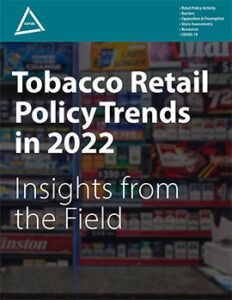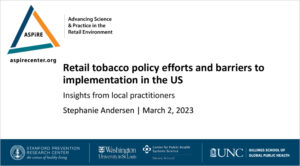Spatial Clustering of Tobacco Retailers Near US Public Schools
An ASPiRE team that included Paul Delamater, Sarah Halvorson-Fried, Amanda Kong, and Kurt Ribisl examined the clustering of tobacco retailers near public schools. They found that tobacco retailers were closer to schools in rural areas, cities, and towns, and were more dense around schools in rural areas, cities, and suburbs compared to random locations. “This [...]


